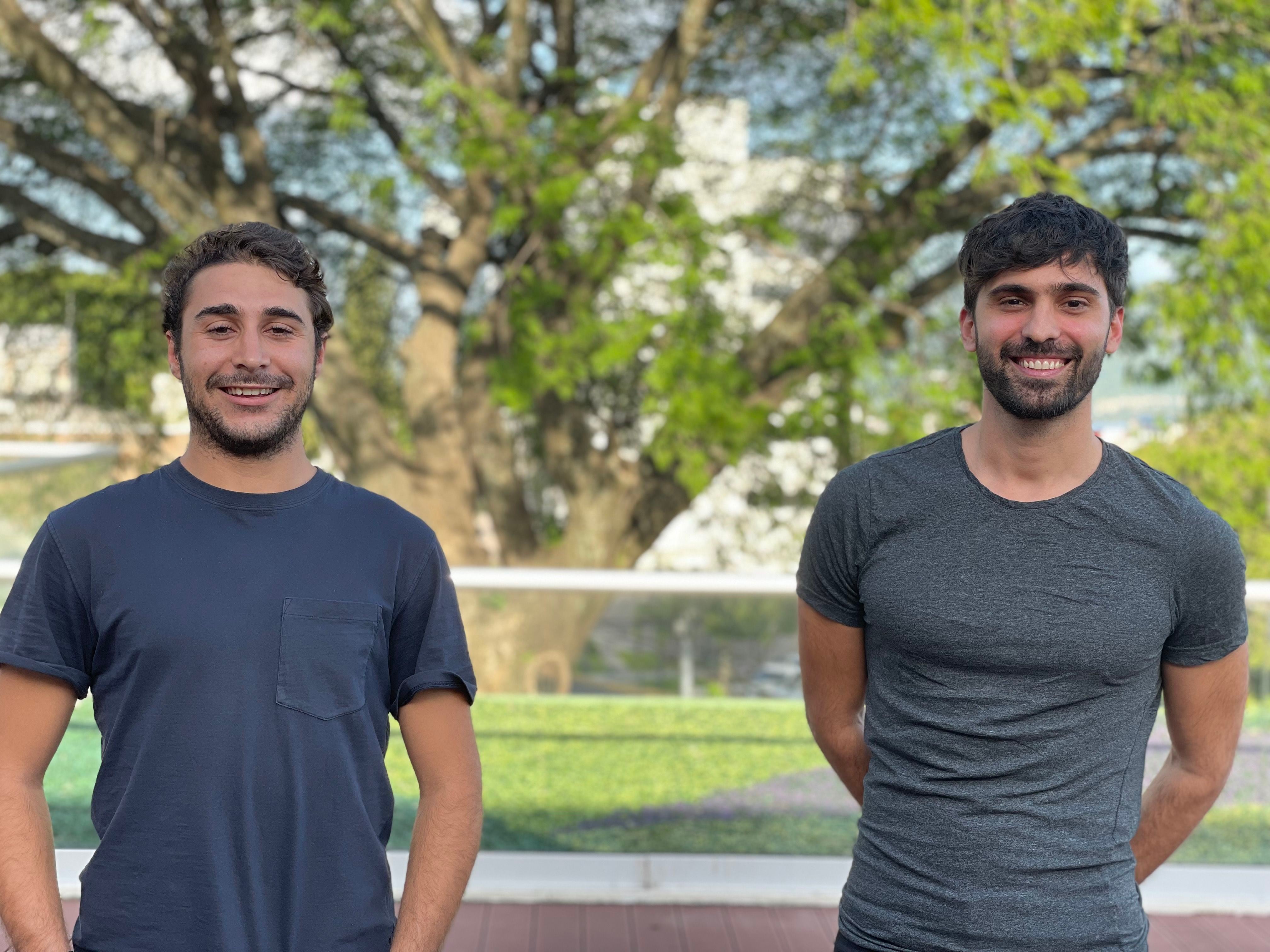
Driven by entrepreneurial spirit, the ability to adapt to complex scenarios and a certain dose of resilience, Argentine fintech companies can win a medal that not all sectors achieve in a complex economic scenario. Many of them, even though they are SMEs, have conquered other markets in the region. Two factors add up to boost the phenomenon: the interest of many investment funds in supporting the fintech sector and the pandemic, which drove the digitization of financial services.
Some cases are more than known. The giant Mercado Libre is listed on Wall Street and has a highly developed activity in virtually every country in the region, both in its marketplace activity and through its financial arm, Mercado Pago. Ualá, the wallet founded by Pierpaolo Barbieri, is one of the Argentine “unicorns” (the tech companies worth more than USD 1 billion) and has already started its regional expansion in Colombia and Mexico, where it even bought a bank. But in parallel to those big leagues, other Argentine fintechs are strengthening abroad.
In the last week, there were two local fintechs that started operations in Latin American countries. One of them is Lemon, the startup founded by Marcelo Cavazzoli and Borja Martel that this week announced its first step outside Argentina, nothing less than in Brazil. “It's the first step in our expansion plan to fill all of Latin America with Bitcoin,” Cavazzoli said. “When we started this project at the end of 2019 we were 5 people, today there are more than 200 of us in Argentina and we are looking to close the year with 60 new talents in Brazil,” he added. It plans to expand its work team and reach 500 “across the region” by the end of the year.
Lemon, which closed a round of investments worth USD 16 million in 2021, will offer in the neighboring country a product very similar to what it offers here: solutions for the buying and selling of cryptocurrencies with local currency, yields of 13% in DAI and 7% in USDT, a prepaid Visa card and international transfers in crypto. The app is now available to the first 10,000 Brazilian users who registered for the Beta version and who will soon receive an NFT (unique and unrepeatable digital asset) with limited editions that will allow access to the benefits.

“Argentina is ahead of the rest of the region in terms of cryptocurrency adoption. There are many players who started their activity very early, so a product that is already validated in Argentina is safe to go out and try it out in another market,” Cavazzoli told Infobae. With a lot of focus on communication, the launch in Brazil is “culturally different” from that developed in Argentina, where it hit hard with cashback: each payment with the Lemon prepaid card offers a 2% refund of its amount in Bitcoin. Another key point of the launch is to generate a solid viral effect on networks. “It's not just cashback. Let's empower the user, everyone wants to have the Lemon card,” Cavazzoli said.
On the other hand, the founder and CEO of Lemon explained to Infobae that there are two major financial service providers in the Brazilian market: exchanges, which target a more sophisticated audience and digital banks (with Nubank at the head) that target a user looking for digital but not familiar with cryptocurrencies. “Lemon may be the middle ground, the missing player, with the scalability to grow in that market,” Cavazzoli said.
Another fintech that landed abroad this week is Wenance, the company founded by Alejandro Muszak dedicated to online consumer credit. With its brand, Welp began operating in Peru, which adds to its presence in Mexico, Uruguay and Spain. The regional expansion project also includes the launch in places such as Poland, the United States, the Czech Republic and Sweden during 2023.
By the end of 2022, Wenance expects to place loans worth USD 1 million in Peru within the framework of a more ambitious objective: to double the supply of credit in all the markets in which it operates, especially in the underbanked and unbanked sectors of the population. Across all markets, it currently has a portfolio of USD 50 million with 150,000 loans granted and 800 employees. In 2017 Wenance became the first Argentinean fintech to launch a public personal loan portfolio trust, of which it has issued two series in the capital market.
“The choice of each country in which the company decides to start activities is not random. It requires a thorough study of the market, population needs and consumer preferences, among other factors. In the case of Peru, the fintech ecosystem grew between 25% and 30% during the pandemic. It is an attractive square that allows us to continue to expand our presence in the region,” said Rafael Valera, Global CCO of Wenance.
Fintech and “Multilatina”
Among the crowdfunding segment, Afluenta stands out, one of the first fintechs in the country created in 2012 and with a presence in Mexico, which is now its main market, and Peru, as well as Argentina. In the latter two countries it was the first crowdfunding company. Outside Argentina, Afluenta has a community of more than 2,600,000 people and has provided loans worth more than $60 million.
“There is still much more to create and expand what we do from our headquarters in Buenos Aires. The imminent incorporation of blockchain technology and crypto assets into our operations will turn Latin America into a single lending market where people, companies and investment funds from anywhere in the world can finance the needs and projects of Latinos like never before,” said Alejandro. Cosentino, founder of Afluenta and one of the pioneers of the fintech ecosystem in Argentina.

The businessman explained to Infobae that Afluenta was born with the purpose of becoming “multilatina” and that it not only promoted an activity that did not exist in the region, but also added a particular technological development that allows it to adjust rates to risk and diversify investments among other particular characteristics.
Argentine fintech landings in other countries in the region will increase, according to Gastón Irigoyen, co-founder of Pomelo, a company that offers financial services infrastructure that even to companies that do not have finance as their core business: “Opportunities are latent, especially in recent years when a lot of capital appeared because there are investment funds that look towards Latin America. In addition, building regional and even global companies is something that is in the DNA of technological entrepreneurs in Argentina, no one undertakes thinking only of the local market. That is intrinsic to technology companies, whether they are finance or not.”
The strategy to go to other markets, Irigoyen explained, is to learn to be local: “It is very important to have a local strategy, that the company feels more Chilean than Argentina, or more Mexican than Argentina, to hire local people and adapt to each market. The landing has to be very local, finding opportunities. The fintech that achieves that can perform better even than a company with a global reach.” Pomelo is already present in Argentina, Brazil, Mexico and Colombia with only one year of activity, which makes clear its vocation to jump to the market on a regional basis.

Another case of regional expansion is that of Alprestamo, the financial services marketplace whose platform connects users looking for loans and cards with entities that offer them. Four years after its creation, fintech operates in Argentina, Mexico, Spain and Uruguay under the same business model, with more than 2.5 million users and more than 50 financial and banking institutions. Its customer base in Uruguay is 400,000 users, 10% of the country's population. In April it will open operations in Colombia and plans to arrive in Brazil by the end of the year.
“The main strength of a local fintech when landing in other countries is that Argentina is very advanced in technology within the region. Our entrepreneurial spirit, the habit of solving many issues at the same time and our pace of work differentiates us and generates a plus, both in service and in the volume of work we can do,” said Julian Sanclemente, CEO of Alprestamo.
In the same vein, Juan Pablo Bruzzo, founder of Moni, a digital wallet that after 9 years of local activity has already landed in Colombia, where it has been developing its consumer loan portfolio for a year and a half: “We have a strength that has to do with being used to managing in a very economic, regulatory, high inflation and therefore very high interest rates. That gives us a gymnastics and flexibility when it comes to bringing the operation to countries with a much more stable macroeconomy.”

“Business models always have to adapt to the rules and culture of each country. And although at Moni we have a model and a business focus that works locally successfully, landing in another market involves adapting and making a very specific customization, from regulations to the consumption habits of our potential customers, to means of payment, to technological development, and to countless factors”, explained Bruzzo, former president of the Argentine Chamber of Fintech.
Another Argentine company in the fintech sector that made the leap into the region is Geopagos, a platform that provides services for the acceptance of digital payments founded in 2013 that can be considered a regional company, with businesses in Argentina, Chile, Mexico, Ecuador, Peru, Colombia, Bolivia, Dominican Republic, Costa Rica, Nicaragua , Panama, Honduras, El Salvador and Guatemala. The rise of electronic payments found “payment groupers” and “acquirers” eager to find such services.
In the company they explain that having emerged in Argentina implies a very marked characteristic of resilience. “The possibility of facing unexpected changes and even crises that forces us to constantly reinvent ourselves, with the creativity of facing the complexity that the Argentine market requires. Other markets will present other challenges, but already knowing how to think within a turbulent market, they can be overcome”, they explained in Geopagos.
KEEP READING:
Últimas Noticias
Debanhi Escobar: they secured the motel where she was found lifeless in a cistern
Members of the Specialized Prosecutor's Office in Nuevo León secured the Nueva Castilla Motel as part of the investigations into the case

The oldest person in the world died at the age of 119
Kane Tanaka lived in Japan. She was born six months earlier than George Orwell, the same year that the Wright brothers first flew, and Marie Curie became the first woman to win a Nobel Prize

Macabre find in CDMX: they left a body bagged and tied in a taxi
The body was left in the back seats of the car. It was covered with black bags and tied with industrial tape
The eagles of America will face Manchester City in a duel of legends. Here are the details
The top Mexican football champion will play a match with Pep Guardiola's squad in the Lone Star Cup

Why is it good to bring dogs out to know the world when they are puppies
A so-called protection against the spread of diseases threatens the integral development of dogs




